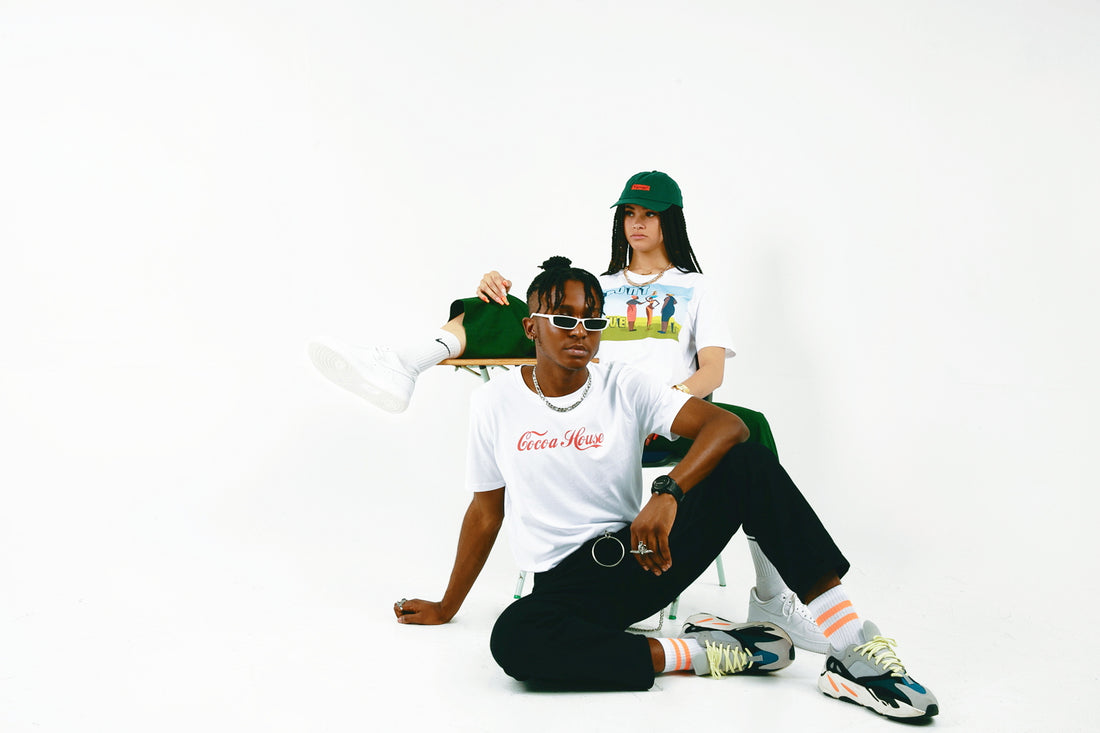
Style and Ethics – Millennials
Bitter fact - the fashion industry is one of the most polluting industries worldwide. Every year, the fashion industry produces more than 80 billion clothing pieces, and when it’s time to discard, 3 out of 4 end up in incinerators or landfills. Given the statistics, it’s no wonder why terms such as ‘ethical fashion’ ‘sustainable fashion’ and ‘ecofriendly clothing’ have gained so much of millennials attention. If you want to know what these terms mean and what role Generation Y can play to minimize the negative impacts of the fashion industry on our environment, then you’re at the right place.
Ethical fashion: a road towards sustainable clothing
Ethical fashion encompasses clothing that has been made ethically. In other words, clothing that is people and planet-friendly. Ethical fashion represents sustainability as it includes clothing made from eco-friendly products only. Moreover, there is less consumption of water and reduced waste generation in the process.
Luckily, many industries have grown the awareness of ethical fashion and are now contributing to sustainability. CoolAfrican is one such example, providing a variety of sustainable and eco-friendly clothing e.g., organic T-shirt, which is made out of 100% organic cotton. However, there is still a huge proportion of brands whose focus solely relies on earning profit. Interestingly, this is where millennials can play their part wisely. Want to know how and why? Keep reading.
Millennials to the rescue!
According to recent research, millennials are the ones leading the ethical fashion movement because they are the ideal audience for sustainable and eco-friendly fashion. Before purchasing anything, most of them want to know how it was made and what its ecological footprint is.
Since millennials are estimated to become the biggest consumer base for this market, they can force the fashion industry to produce eco-friendly clothing by spreading the importance of purchasing ethical clothing only. But according to an estimate, there are only 53% of millennials who prefer shopping ethically. The rest of 47% still needs to understand why it’s important to shop for sustainable clothing.

Each millennial must opt for ethical, sustainable clothing
It’s easier for the younger generation to understand how important it is to save their environment as they are highly motivated to bring a positive change in their society. Moreover, with their vast social media networks, they can spread awareness like fire in a jungle. Therefore, all of them must opt for ethical, sustainable clothing, and given below are the reasons why:
- Safe for the environment
Most of the clothing is made from cotton that is grown using artificial chemicals such as fertilizers and pesticides. The dyes used are also harmful to the environment. Sustainable clothing doesn’t involve any toxic chemicals therefore, it doesn’t contribute to environmental pollution. Likewise, CoolAfrican also guarantees chemical-free clothing, as mentioned earlier, their organic T-shirts are made from 100% organic cotton.
- Better quality and unique designs
The clothes embody unique designs. They are also well-made, guarantees better quality, and offer years of wearability.
- Reduction in waste
Take the example of CoolAfrican in reducing fabric waste. They have offered their customers a free of cost service to send unwanted clothes for recycling thus reducing pressure on landfills. And this is just one example. Such trends can prove to be an innovative solution for the growing fabric waste problem.
- Safe to wear
Last but not the least, they are safe to wear. As sustainable clothes are made without using any chemicals, there is also no risk of getting skin allergies from wearing them.
So, if you’re looking for ethical, sustainable clothing that is inspired by African pop culture, then CoolAfrican is where you should stop by. At CoolAfrican, you can find a variety of trendy organic T-shirts, hoodies, sweatshirts, and other accessories.

